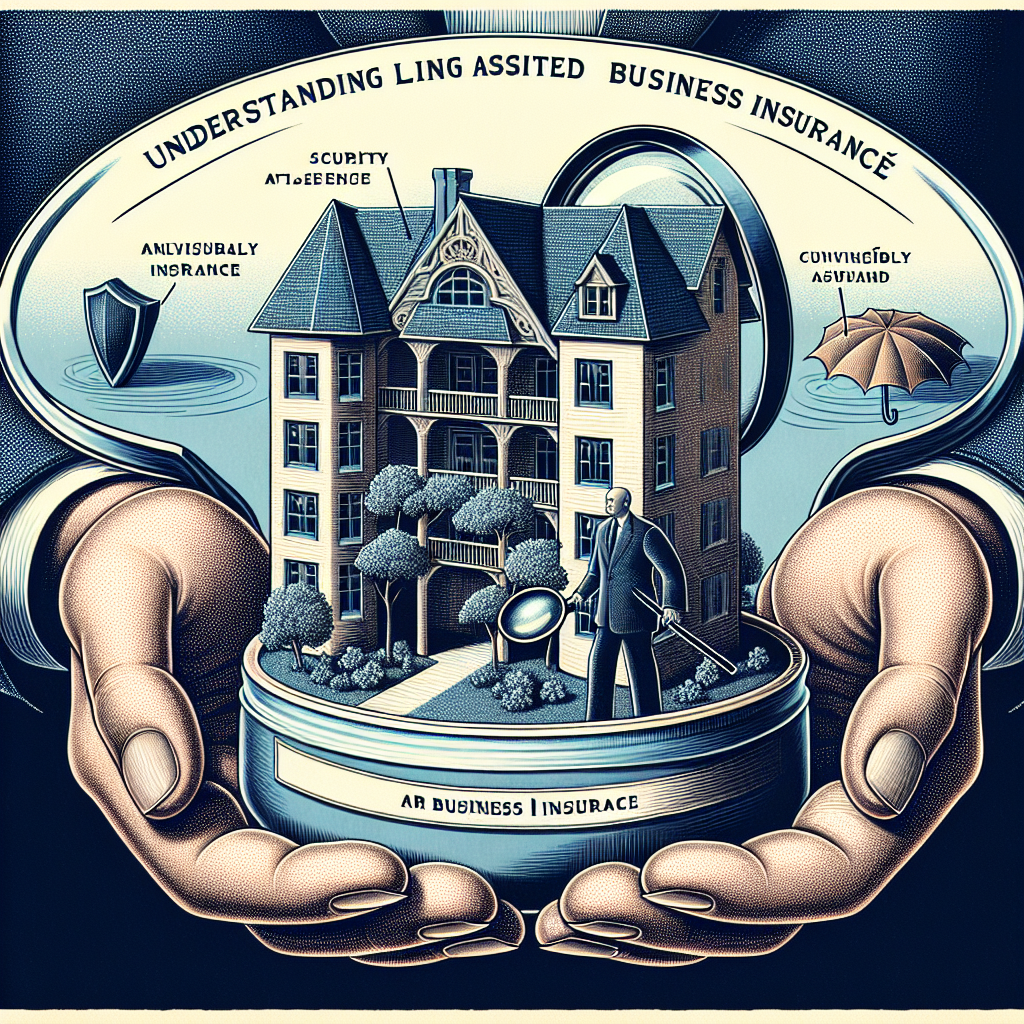Filed under Business Insurance on
Understanding Assisted Living Business Insurance

The realm of assisted living is a rapidly expanding sector of the healthcare industry. As more individuals seek personalized care in environments that cater to their unique needs, the demand for such facilities grows. However, operating an assisted living facility comes with its unique set of challenges and risks. This is where understanding assisted living business insurance becomes crucial for owners and operators.
Why Insurance Is Vital for Assisted Living Facilities
Assisted living facilities are responsible for the health and well-being of their residents. With this responsibility comes a multitude of risks that can result in legal liabilities or financial losses. Understanding assisted living business insurance not only safeguards the facility from unforeseen incidents but also ensures compliance with state and federal regulations.
The Core Components of Assisted Living Business Insurance
Like any other healthcare service provider, assisted living facilities must mitigate risks through a comprehensive insurance policy. The key components typically include:
- General Liability Insurance: Protects against claims of bodily injury, property damage, and personal injury.
- Professional Liability Insurance: Sometimes referred to as malpractice insurance, it covers claims related to negligence or harm due to the services provided.
- Workers’ Compensation Insurance: Covers the facility’s employees in case of work-related injuries or illnesses.
- Property Insurance: Protects against damage to the facility's physical structure and contents due to events like fire or theft.
- Commercial Auto Insurance: Essential if the facility provides transportation services for residents.
The Rising Demand and Its Implications
As the baby boomer generation ages, the demand for assisted living facilities is projected to surge. Industry experts suggest that this growth will bring about further specialization and innovation in services, catering to diverse senior needs. However, with this growth comes heightened scrutiny and regulatory oversight, making understanding assisted living business insurance crucial.
Moreover, industry trends indicate a rise in litigation against assisted living facilities. Ensuring comprehensive insurance can protect facilities from these potential legal battles, making the choice of coverage critical for both financial security and reputation management.
Choosing the Right Coverage: Key Considerations
Selecting the appropriate coverage for an assisted living facility requires a thorough evaluation of potential risks and existing resources. Here are key considerations to keep in mind:
Assessing the Facility’s Risk Profile
Different facilities have varying levels of risk based on their location, size, and resident demographics. A thorough risk assessment will identify areas that are most vulnerable, helping tailor the insurance package to best cover potential exposures.
Reviewing State and Federal Regulations
Each state has its regulations concerning assisted living facilities, and failure to comply can lead to hefty fines or closures. Understanding assisted living business insurance includes aligning with mandatory coverage required by law, ensuring that the facility operates within legal bounds.
Identifying Special Coverage Needs
Some facilities may offer unique services such as recreational activities, specialized medical care, or dietary planning. These services might require additional coverage, such as event insurance or specialized liability insurance, to ensure protection against unique risks.
Navigating the Claims Process
Even with comprehensive coverage, the claims process can be daunting. However, properly managing claims is vital to ensure swift recovery from any incidents. Here are some steps to simplify this process:
- Document Thoroughly: Keep detailed records of incidents, including photographs, witness statements, and any relevant documentation.
- Communicate Promptly: Report claims to the insurance provider as soon as possible to avoid delays.
- Consult Legal Counsel: Having a legal advisor can help navigate complex claims and ensure that the facility’s interests are protected.
- Follow Up: Regularly check on the status of claims to ensure that they are moving forward efficiently.
Expert Opinions on Insurance Trends
Several industry specialists have noted shifts in how assisted living facilities approach insurance due to evolving risks and regulations. John Doe, an insurance analyst with a focus on healthcare facilities, notes, “With cyber threats becoming more prevalent, facilities are increasingly adding cyber liability insurance to their packages. Protecting resident data has become a top priority.”
In addition, Jane Smith, a legal advisor specializing in healthcare, emphasizes the importance of regular policy reviews. “As the industry changes, so do the liabilities. Regularly reviewing your policy with an expert ensures that you remain adequately covered without any oversights that could lead to vulnerabilities,” she advises.
The Financial Aspect: Balancing Cost and Coverage
While comprehensive insurance policies can be costly, the financial impact of operating without ample coverage can be catastrophic. Facilities must strike a balance between affordable premiums and adequate protection.
Evaluating Costs
Cost evaluation should consider not only the premiums but also the deductibles and coverage limits. Some insurers offer discounts for facilities that implement risk management strategies, making it worthwhile to invest in safety and preventive measures.
The Future of Assisted Living Insurance
The landscape of assisted living and its associated insurance needs are continually evolving. Driven by technological advancements, changing regulations, and emerging risks, facilities must remain vigilant in adapting their insurance strategies.
The trend towards personalized care and a focus on mental health in assisted living environments further compels facilities to reevaluate the scope of their coverage. As this sector grows, understanding assisted living business insurance becomes not just a requirement but a strategic advantage in delivering exceptional care while safeguarding against uncertainties.
In conclusion, while insurance may seem like a complex maze, it is an indispensable part of running an assisted living facility. By ensuring thorough understanding and appropriate coverage, facility operators can focus on what truly matters: providing their residents with a safe, supportive, and enriching environment.





